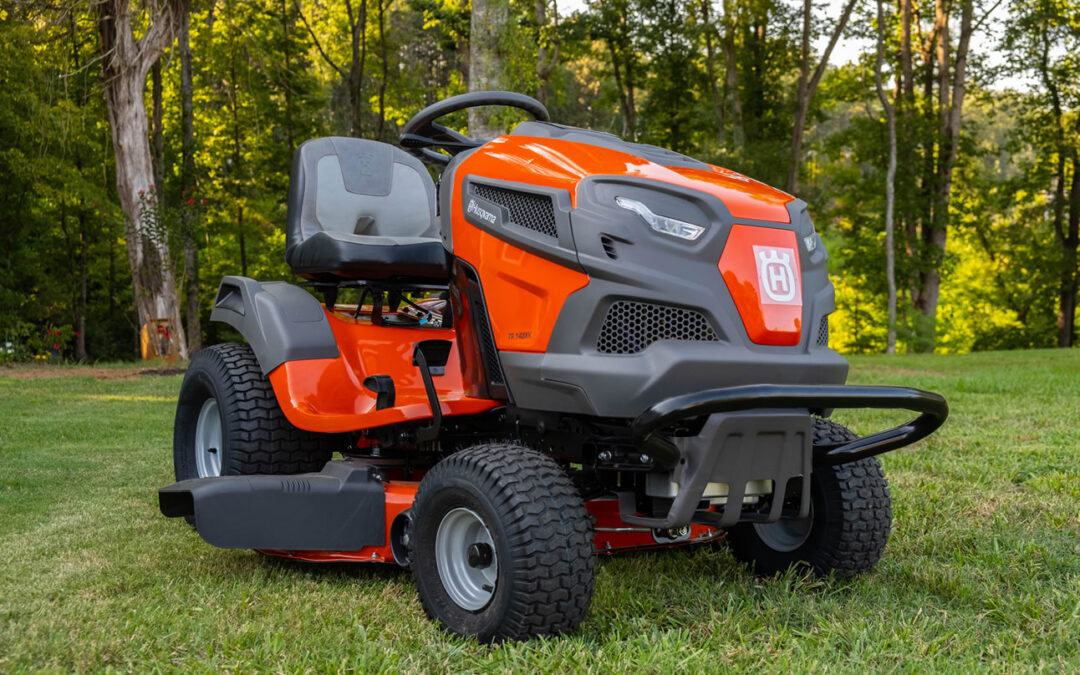Selecting the right lawn mower is more than a logistic decision in this article we evaluate gas vs electric lawn mower — it’s a fight!
In one corner, you’ve got the gas lawn mower, with its perfect record of clean grass cuts and unrivaled cutting quality. This lawn mower boasts power and is one of the top mowers for nearly every type of lawn.
Opposite the ever-popular gas lawn mower is its long-time rival, the electrical lawn mower. With its fuel economy, it’s the lawn mower to beat for environmental friendliness. This lawn mower also boasts a low-maintenance build, making it the top choice for the easiest lawn mower to own.
However, the fight is now a triple-threat bout, with the reel lawn mower joining the fray with its minimal maintenance build and low noise emissions. Its compact design makes it the lightweight lawn mower to beat in this showdown between grass-cutters.
Which lawn mower will reign supreme? Find out which one is worth your money in our comprehensive lawn mower guide!
Meet the Contenders
This battle between the gas vs. electric lawn mower (and reel lawn mowers) is one for the ages. However, first, let’s get to know more about our heavyweight (and lightweight) contenders before the first grass-cutting punches are thrown.
Gas Lawn Mowers: The Classics To Beat
Gas lawn mowers have reigned supreme in many lawns for years. These classic beasts are powered by gasoline, boasting power that’s tough to beat. Gas lawn mowers cut various lengths of grass due to their high-power rotary blades and gas-powered engines.
Much of the power generated by gas lawn mowers comes from their robust engines. These engines are key features of gas lawn mowers as they enable these gas-cutting champs to muscle through various grass lengths with ease.
Whether you’re trimming a jungle or a lawn that’s been left unattended for months, you can’t go wrong with a gas lawn mower. However, be aware; their robust power and versatility do come with some trade-offs.
First, gas lawn mowers are notorious for the noise they make due to their gas-guzzling engines. If you don’t want the neighbors to know that you’re mowing your lawn, a gas-powered lawn mower may not be the best option.
Let’s also not forget the fuel needed by these mowers. Operating on gasoline, gas lawn mowers can also be detrimental to the environment due to their emissions. This is also bad news given the high prices of fuel prices these days.
Electric Lawn Mowers: Rivals to Gas Mowers
Few can match gas mowers in power. However, where the gas mower comes short, the electric lawn mower is superior.
Electric mowers zip through shorter blades of grass with their efficient electric-powered motors. Because the motors don’t run on gasoline, they’re more efficient and quieter. As a result, you won’t have to worry about waking the neighbors when you attend to your lawn.
Besides their fuel efficiency and lack of noise, electric lawn mowers are also low maintenance. You’ll get to pay less for new parts and spend less time ensuring that the motor runs smoothly. With mulching blades, electric lawn mowers can also be excellent choices if you’re getting into mulching.
Electric lawn mowers come in uncorded and corded models. Both are excellent at managing lawns but do have some constraints. For one, uncorded types require charging. Meanwhile, corded versions, while capable of mowing for hours on end, may not be excellent choices for much more spacious lawns.
Manual Push or Reel Mowers: Wildcards in the Mix
In this battle of gas vs. electric lawn mowers, manual or reel mowers are the wildcards of the match. Unlike their gasoline-powered and electric counterparts, these mowers have stood the test of time with their manual operation.
With no energy source required, reel mowers require no charging or refueling. They also have little to no mechanical components, making them some of the lowest-maintenance and lightest mowers out there.
Despite lacking all the bells and whistles of today’s mowers, these classics boast rotating cylinder blades that make mincemeat out of even the toughest grass. The absence of a noisy motor is also a godsend for mowers and their neighbors.
Of course, the lack of mechanical components means having to mow your lawn with a bit more elbow grease. Also, due to the increased effort required to wield these lawn mowers, they are more suitable for smaller lawns (unless you fancy an arm and lower back workout).
Considerations for Choosing the Right Lawn Mower
Ultimately, the right lawn mower for you comes down to several key considerations. Here are some of the things you should take stock of when you’re selecting a lawn mower.
The Size of Your Lawn
One key factor in selecting your lawn mower is the size of your lawn. The bigger your lawn is, the more likely it is that a gas-powered mower would be better. Gas-powered lawn mowers can buzz through large areas of grass due to their high-capacity gas engines.
By contrast, an electric lawn mower can be a more practical choice for smaller lawns. Electric lawn mowers can get the job done for smaller patches of grass before you’d have to charge them.
Environmental Impact
If you’re big on leaving a low carbon footprint, a gas-powered lawn mower may not be the best choice. Instead, choose an electric lawn mower.
Running on electricity, these lawn mowers produce zero emissions. This feature makes electric lawn mowers the most environmentally sound of all lawn mower models. As a bonus, these mowers are also cheaper to operate since you’re not paying for gas.
Maintenance
Another factor you should look into is how willing you are to maintain your mower.
Power, versatility, and broad blade options are all advantages you may be looking for in a lawn mower, and gas mowers have these traits in spades. However, be aware that these qualities also come with maintenance requirements.
From spark plug checks to ensuring the engine is clean, you’ll be in for a battery of maintenance tasks when you get a gas-powered mower.
On the other hand, electric mowers are low-maintenance options if you don’t look forward to maintenance duties. Despite being less powerful than their gasoline-powered counterparts, electric lawn mowers require no fuel changes or spark plug checks. All you need to do is keep the mower blades sharp.
Terrain and Power Needs
Your lawn’s terrain will also determine the right mower for you.
If your lawn has a more rugged topography, then your best bet would be a gas lawn mower. A gas-powered mower can generate more power that makes mowing on rugged terrain a breeze.
Is your lawn’s terrain a bit more on the flatter side? If so, choose an electric lawn mower. While they’re not as powerful as gas-powered ones, electric mowers are perfect for tamer and smaller lawns that require regular maintenance.
Noise Levels
Noise is another key concern when selecting your next mower. If you’re looking for one that’s quiet, electric lawn mowers are the way to go. These lawn mowers have electric motors that run more smoothly and generate less noise. The quietness of an electric-powered mower becomes critical especially if you live closely with other people.
Your Routine Lawn Care Duties and Desired Blade Type
Choosing the right lawn mower goes beyond selecting a gas vs. electric lawn mower. Depending on what your regular lawn maintenance tasks are, you should also choose based on your desired blade types.
You’ll be selecting your blades based on your routine lawn care duties, so choose mowers that support the blades you need for your tasks. For instance, gas mowers are typically outfitted with horizontal rotary blades. These blades are excellent for cutting various grass lengths, but they offer little to no mulching opportunities.
By contrast, electrical lawn mowers are a superior option if you’re into mulching. This is because some electrical mowers have configurations and attachments that are perfect for mulching blades.
Key Takeaway: There’s No Clear-Cut Winner!
When choosing between the gas vs. electric lawn mower, it ultimately comes down to your needs. Take stock of certain factors as you make your decision, and you’ll find the ideal mower that’s perfect for your tasks and preferences.
However, regardless of which lawn mower you choose, you’ll need the right mower blades. Luckily, we have them for you.
Check out our high-quality mower blades and win your war on unruly grass — regardless of which lawn mower you choose.
FAQs
How Do Gas and Electric Lawn Mowers Differ in Cutting Performance?
Gas mowers offer robust cutting power with high-capacity engines and versatile rotary blades suitable for various grass lengths and terrains. By contrast, electric mowers are more fuel-efficient and emit less noise. Also, electrical mowers have configurations for mulching blades, making them better suited for mulching.
Which Lawn Mower Requires the Least Maintenance?
Between gas and electric mowers, the latter requires less maintenance. This is because electric mowers don’t run on gasoline, meaning these mowers don’t require fuel checks and changes. Besides that, electric mowers have fewer parts (like spark plugs) that require frequent checks and replacements.
I’m Mowing a Small Backyard Lawn. Is a Gasoline-Powered Lawn Mower Worth It?
For a smaller lawn, you’d be better off with a compact electric lawn mower. An electric lawn mower can deal with your smaller lawn while enabling you to save on gas. The only time it can make sense for you to invest in a gas-powered mower is if your small lawn has rugged and uneven terrain. In this case, the power from a gas-powered lawn mower can be a lifesaver.

